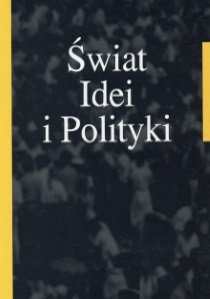Koniec specjalnych relacji Stanów Zjednoczonych z Arabią Saudyjską?
DOI:
https://doi.org/10.34767/SIIP.2016.15.06Słowa kluczowe:
Arabia Saudyjska, USA, ropa naftowa, Iran, specjalne relacje.Abstrakt
Od wielu lat Stany Zjednoczone utrzymują specjalne stosunki z Arabią Saudyjską, które, w odróżnieniu od relacji z Izraelem, są wzajemnie korzystne. Arabia Saudyjska sprzedaje ok.10 mln baryłek ropy naftowej dziennie. Transakcje te rozliczane są w amerykańskich dolarach, co wzmacnia tę walutę i tym samym dominację Ameryki w gospodarce światowej. Stany Zjednoczone z kolei starają się zapewnić bezpieczeństwo zarówno Arabii Saudyjskiej, jak i też innym, naftowym krajom arabskim. Chodzi tu m.in. o utrzymanie ogromnych zasobów ropy naftowej i gazu ziemnego w przyjaznych dla Ameryki i całego Zachodu rękach. Ostatnio zmalało dla USA znaczenie tych zasobów i regionu Bliskiego Wschodu. Także zawarcie z Iranem porozumienia o normalizacji stosunków polityczno-gospodarczych doprowadziło do ochłodzenia relacji Stanów Zjednoczonych z Arabią Saudyjską. Sojusz obu tych państw przypomina małżeństwo z rozsądku, w którym za fasadą przyjaźni i harmonii kryje się rachunek zysków i strat. Będzie on trwać tak długo, jak długo wzajemne korzyści będą większe od strat.
Bibliografia
Al-Kibsi G., Królestwo niezależne od ropy, „Forum” 2016, nr 2.
Almashabi D., Nerein V., Carey G., Dom Saudów krzewi bogactwo, „Bloomberg Businessweek – Polska” 2015, nr 11.
Alogail F., The Houthi movement (Ansar Allah) facing the coalition foreces, „Przegląd Strategiczny” 2015, nr 8.
Al-Weshah A., American foreign Policy towards Egypt under Hosni Mubarak’s regime, „Przegląd Strategiczny” 2016, nr 9.
Amerykański niszczyciel zaatakowany u wybrzeży Jemenu, www.wpolityce.pl 14.10.2016.
Arabia Saudyjska szuka nowych źródeł przychodu, www.onet.pl 13.09.2016.
Austerity in Saudi Arabia: the start of something, „The Economist” 17.10.2015.
Baker R.W., One Islam, many muslim worlds. Spirituality, identity, and resistance across Islamic States, Oxford –New York 2015.
Bremmer I., Why a more isolated Saudi Arabia is looking weaker, „Time” 26.10.2015.
Cockburn P., Saudi Arabia is showing signs of financial strain as its relationship with US sours, „The Independent” 27.09.2016.
Commins D., Islam in Saudi Arabia, Ithaca 2015.
Darsey J.M., Saudi Arabia and Iran: the battle for hegemony that the Kingdom cannot win, „Przegląd Strategiczny” 2016, nr 9.
Fakeyh R., Simon S., The pragmatic superpower: Winding the cold war in the Middle East, New York 2016.
Falk R., Saudi Arabia, royal impunity, and the quicksand of special relationships, „Foreign Policy Journal”, www.foreignpolicyjournal.com.
Fish R., For the first time Saudi Arabia is being attacked by Sunni and Shia leaders, „The Independent” 22.09.2016.
Fox B., Saudi Royal allegedly involved in terrorism, claims Guantanamo prisoner, „The Independent” 17.09.2016.
Garcia F., US Senate clears way for 1.15 billion dollar sale of military equipment to Saudi Arabia, „The Independent” 22.09.2016.
Gwiazda A., Niepewna normalizacja stosunków polityczno-gospodarczych Iranu z Zachodem, „Przegląd Strategiczny” 2015, nr 8.
Indyk M.S., Liberthal K.G., O’Hanlon M.E., Zmieniając historię. Polityka zagraniczna Baracka Obamy, Warszawa 2013.
Janik M., Przyjaciele są wściekli, „Dziennik Gazeta Prawna” 6–8.05.2016.
Kapiszewski J., Na krawędzi konfrontacji zbrojnej, „Dziennik Gazeta Prawna” 7.01.2016.
Kentisch B., Saudi-led coalition in Yemen accused of „genocide” after airstrike on funeral hall, „The Independent” 9.10.2016.
Ladler M., Cooper H., Allies Press U.S. to go slow on Egypt, „New York Times” 8.02.2011.
Meyssan T., Arabia Saudyjska chyli się ku upadkowi, www.geopolityka.org, 20.06.2016.
Niedziela S., Konflikty i napięcia w świecie arabskim, Warszawa 2012.
Niedziński B., Kapiszewski J., House of Sauds czyli gra w sojusze na Bliskim Wschodzie, „Dziennik Gazeta Prawna” 17.12.2015.
Przełom czy przekłamanie?, „Forum” 2016, nr 2.
Przybylski J., Zemsta boga, „Do Rzeczy” 2016, nr 2.
Rasheed M.M., Historia Arabii Saudyjskiej, tłum., K. Pachniak, Warszawa 2011.
Shankar A., The Saudi-Iran rivalry and sectarian strife in South Asia, „The Diplomat” 2016.
SIPRI Yearbook 2015, Stockholm 2016.
Sorenson D.S., Why the Saudi Arabian Defence binge?, „Contemporary Security Policy” 2014, No. 1.
Stubbs J., Francis E., Assad claims Saudi Arabia offered to help him if he cuts ties with Iran, „The Independent” 14.10.2016.
Watts J., Theresa May refuses to withdraw support for Saudi Arabia’s place on UN Human Rights Council despite Yemen atrocities, „The Independent” 26.10.2016.
Withnall A., UK and US pile pressure on Saudi Arabia over Yemen funeral bombing, „The Independent” 9.10.2016.
Pobrania
Opublikowane
Numer
Dział
Licencja
Prawa autorskie (c) 2016 Świat Idei i Polityki

Utwór dostępny jest na licencji Creative Commons Uznanie autorstwa 4.0 Międzynarodowe.

